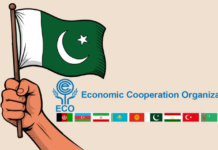For much of its 20-year history, Hum Network Ltd (HUMNL) has been best known as a conventional broadcaster, producing award-winning Urdu drama serials, running some of the country’s most recognisable entertainment and lifestyle channels, and thriving on advertising revenue. But in recent years, a quiet shift has been taking place in its income streams: digital revenue, particularly from YouTube, has gone from a marginal earner to a significant contributor to the group’s financial health.
By the end of the financial year ending June 30, 2024, digital revenue and subscription income – which is how the company describes its revenue from YouTube and other digital platforms – accounted for 18% of Hum Networks’ total revenue. That is a remarkable climb from the days when online earnings were little more than a footnote in the accounts.
The company’s official YouTube channel has amassed over 51 million subscribers and 46 billion views, making it the third-largest creator in Pakistan by subscriber count. The revenue line has followed that surge: subscription income has grown at a 10-year compound annual growth rate of 30%, reaching Rs2.2 billion as of the 12 months ending March 31, 2025, the latest period for which data is available.
Yet, the current fiscal year tells a more nuanced story. While digital revenues are still robust, YouTube’s share of total revenue dipped, not because the platform’s earnings fell, but because the revenue pie got much bigger in a different segment.
In 2024, Hum Networks completed the acquisition of Ten Sports, a live sports broadcaster with contracts for events such as the ICC Champions Trophy and Pakistan Super League. Sports broadcasting has little overlap with YouTube monetisation, so its inclusion naturally diluted the digital proportion of total turnover. The content in this publication is expensive to produce. But unlike other journalistic outfits, business publications have to cover the very organizations that directly give them advertisements. Hence, this large source of revenue, which is the lifeblood of other media houses, is severely compromised on account of Profit’s no-compromise policy when it comes to our reporting. No wonder, Profit has lost multiple ad deals, worth tens of millions of rupees, due to stories that held big businesses to account. Hence, for our work to continue unfettered, it must be supported by discerning readers who know the value of quality business journalism, not just for the economy but for the society as a whole.To read the full article, subscribe and support independent business journalism in Pakistan

























